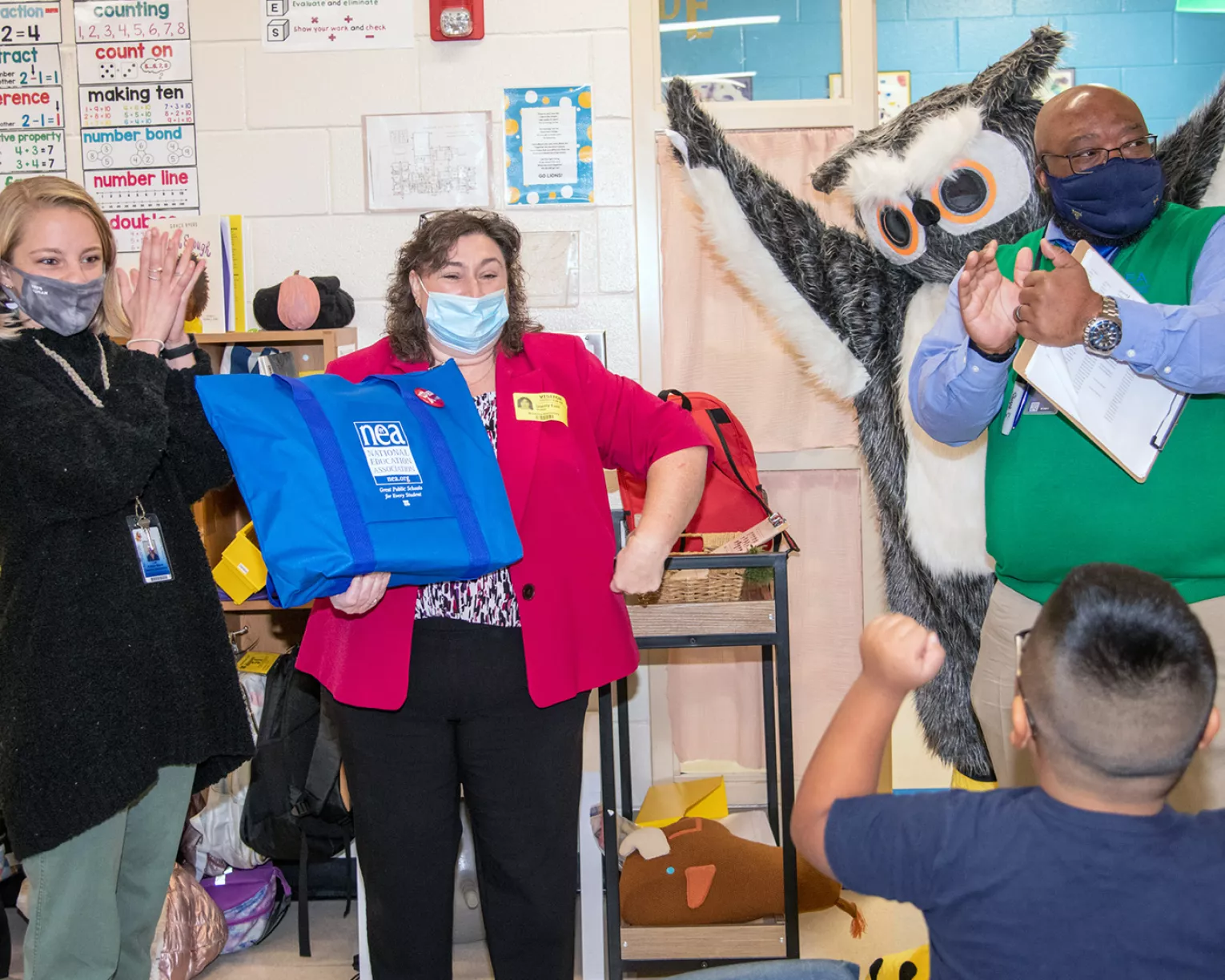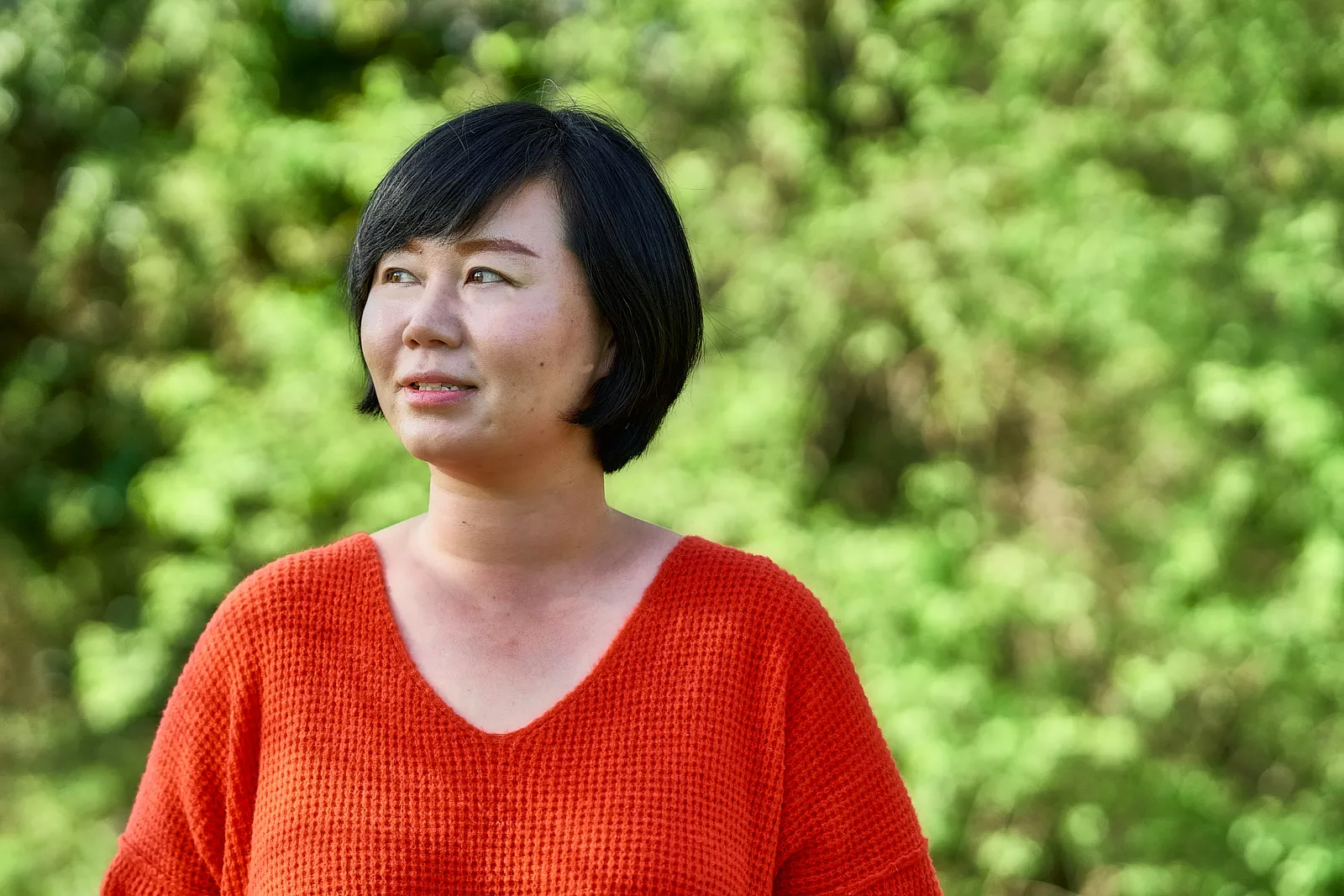
This is my 11th year as a teacher in Guilford County Schools, and I’ve been an elementary, middle, and high school teacher. I’m grateful that I’ve had the chance to work with a whole range of K-12 students with disabilities.
One of the things I really like about being a special education teacher is that you’re teaching students the practical and meaningful skills they need to learn for life. I’m an adaptive curriculum teacher, so I can set up my own pacing guide and really differentiate every lesson based on the students’ needs. In fact, my high school students recently finished registering to vote at school. A few weeks beforehand, I taught them how to fill out licensing forms. It was exciting because my juniors and seniors were able to fill out those forms independently.
As a beginning teacher, however, I initially had no idea about advocacy work or the Guilford County Association of Educators (GCAE), our local affiliate. All of that changed when I became aware of how the North Carolina General Assembly was treating public education. For example, in my third year of teaching, we were suddenly told that salary increases for those with a master’s degree would no longer be applied. And, not long after, they began combining special education classrooms as part of statewide budget cuts.
I was an elementary school special education teacher at the time, and we had three differentiated classrooms to better teach students, but all three of these were combined into one classroom. I then moved to another school because my classroom was gone, and then that school combined their two adaptive classrooms into one, so I had to move once again.
At the time, I was teaching at a middle school and got involved in the “Red for Ed'' rallies. And it happened organically for me because I saw a Facebook post talking about how educators were going to Raleigh to tell our legislators that what was happening wasn’t fair. I used a personal day to attend the march, and after attending I got acquainted with the then-president of the GCAE. He and the other members really taught me how to advocate as a public school educator, and how local elections and local legislators impact our day-to-day lives. Ever since then, I’ve been actively involved in canvassing, organizing efforts, and training sessions.
We still have a lot of work to do when it comes to supporting our special needs students. Guilford County Schools used to have behavioral specialists and teaching assistants for some of the more difficult classrooms. All those positions are gone, so the management burden is all on the classroom teachers. That’s why it’s so important for all public education staff to be engaged in the political process.
The decisionmakers we elect directly impact the quality of public education. Our working conditions and our students’ learning environments are interconnected. If teachers want to improve them, then we must be engaged in political action.


